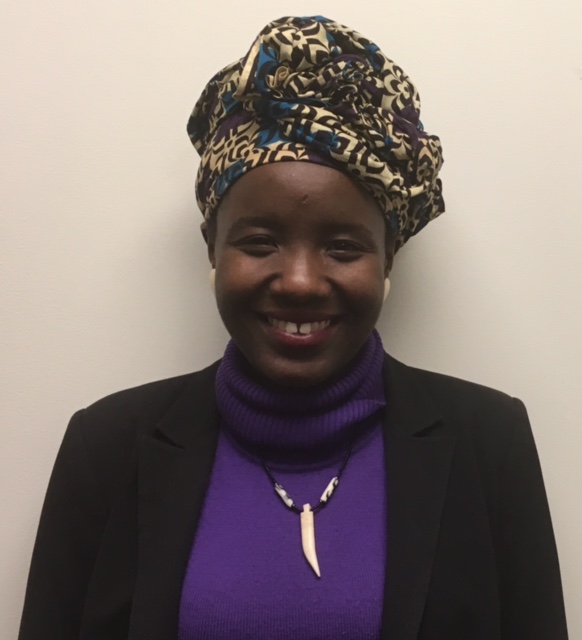Jocelyn Imani is principal consultant at Cultural Interpretation Consultants, LLC. She lives in Washington, DC, and has been a member since 2011.
Instagram: aspiringjegna
Twitter: @jocelynimani
Alma maters: BA, Fisk University, 2009; PhD, Howard University, 2015
Fields of interest: Black Power, African diaspora, public history
Describe your career path. What led you to where you are today? “The Plan” was to complete a five-year MBA program and then get a JD. I heard a presentation from a historian that led me to change my major. I had no plan after that. Senior year came and all I had was incompletes from junior year and mounting anxiety. I had a professor hound me about graduate school. I was barely finishing undergrad and I did not think I was good enough. Yet, every door away from Howard closed and every door toward Howard opened. I enrolled and—through prayer, grit, and support of many beloved ones—I finished. This is the truncated version, but just know I have a real story. Maybe one day I will write a memoir.
What do you like the most about where you live and work? I love thinking about how my life and work have implications on a national and international level. I like working on various projects and I love how considering large audiences forces me to expand my boundaries and challenge my biases.
What projects are you currently working on? There are too many to name—the public historian’s work is never done! I am producing the Big Brown Get Down in May. This is the third installation of this pilot program I have developed and am implementing in Southeast DC. This is where research meets praxis and that enlivens me. Check www.bigbrowngetdown.com for more info. I am also excited that I will have time this summer to work on my scholarship. My research focuses on student activism and cultural expression during the Black Power era, but it is even more relevant now. I have spent the last few years doing programmatic work so I am grateful for the ability to return to the writing.
Have your interests evolved since graduation? If so, how? For sure! I cared a lot about pop culture, but I always filed it away as hobby and not the stuff “serious” scholars gave attention. During my postdoc at the National Museum of African American History and Culture I had the honor of working with a phenomenal chief curator—the incomparable Dr. Jackie Serwer—who is an art historian. I am much more interested in visual arts than I was before. That has also informed my approach to other forms of popular culture and visual representation. The time I have spent working in museums has increased my interest in material culture significantly.
What’s the most fascinating thing you’ve ever found at the archives or while doing research? There is so much good stuff! I think it is a toss-up between finding correspondence of historical actors trash talking to each other and FBI files detailing the levels of surveillance on activists groups. The letters show just how human these folks really are and helps me keep them off pedestals. The FBI records show just how deep Hoover and co. went … they knew no boundaries. Even small meetings—no more than 20 people—had informants. They knew each other, but did not really know each other. It is deep.
Is there an article, book, movie, blog etc. that you could recommend to fellow AHA members?I am always reading different kinds of material. For professional development I highly recommend The Five Choices by Kogon, Merrill, and Renne and Start with Why by Simon Sinek. For personal development, The Four Agreements by Ruiz never fails.
What do you value most about the history discipline? I value methodology and the foundation in social science. I am well aware that the structures upon which the ivory tower grounds its approaches are problematic, but I like that I have a system from which to deviate when necessary. Also, I enjoy the plastic nature of the discipline. History applies to everything!
Why is membership in the AHA important to you? Conferences, symposia, and the like can easily become filled with the same cast of characters from the subfields giving the same talking points. At the AHA annual meeting, I get to see a snapshot of the entire field. I am connected to people I would never know otherwise because we both came to the AHA. Plus I like hearing about the newest innovations and engaging with people on the current challenges. The AHA is like the pulse of the profession and I want to stay in the know.
Do you have a favorite AHA annual meeting anecdote you would like to share? NOPE! What happens at AHA, stays at AHA. . . .
AHA members are involved in all fields of history, with wide-ranging specializations, interests, and areas of employment. To recognize our talented and eclectic membership, AHA Today features a regular AHA Member Spotlight series.
This post first appeared on AHA Today.
Tags: AHA Today Member Spotlight African American History Public History
Comment
Please read our commenting and letters policy before submitting.







